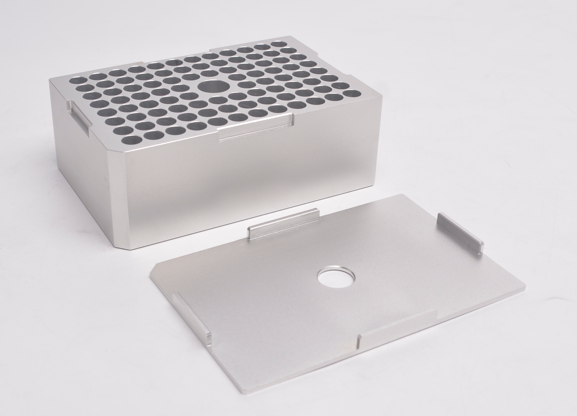Custom enclosures serve different purposes in different industries. They are used to protect and contain electronic components, electrical equipment or equipment in a variety of applications. Manufacturers commonly use custom electronic enclosures in a variety of applications including consumer electronics, medical devices, automotive electronics, industrial control systems, and more. These custom mechanical enclosures protect these devices from environmental, electromagnetic, and radio frequency interference.
Manufacturers often use machined casings to enhance the cosmetic appeal of their products and ensure they are suitable for their intended use. Additionally, these enclosures facilitate optimal customization, allowing designers to meet specific product design requirements and dimensions for efficient component assembly.
Additionally, custom cases are great for protecting electronic components and equipment, ensuring safety. They also protect against contaminants such as chemicals, dust, moisture and physical hazards, reducing the risk of electrical shock.

Different methods of custom enclosure manufacturing
Product engineers and designers employ custom enclosure manufacturing methods that meet specific requirements. However, the ideal approach depends on design complexity, materials used, budget considerations, and prototype-to-production quantities.
Here are the common methods for making custom shells:
The CNC machining process uses automated machines to create custom metal enclosures in a variety of shapes and sizes. These processes are ideal for making prototypes and low-volume enclosures with tighter tolerances and high precision.
Sheet metal fabrication is widely used for custom machine housings. It involves using specialized machines to bend or form metal to produce custom electrical enclosures with the desired shape. It is suitable for manufacturing durable housings with precise dimensions. Generally, this technology is often cheaper compared to CNC machining. Common sheet metal materials used to manufacture machinery enclosures include carbon steel, stainless steel, and aluminum.
3D printing
The 3D printing or additive manufacturing process creates custom electronic boxes by stacking them layer by layer and is suitable for creating test prototypes, custom designs and low-volume enclosures with complex geometries.
This additive manufacturing technology offers greater speed and greater design freedom than most methods. Additionally, 3D printing allows for the creation of custom shells with intricate details.
Vacuum casting is an efficient method of manufacturing custom enclosures that is faster and more economical than injection molding. This technology allows easy production of low-volume casings. It’s ideal for making medical equipment and full-size robot housings.
Metal materials for custom enclosures
There are different materials available for custom enclosures for various applications, as long as you understand the requirements of the product. The metals best suited for housings typically have properties that resist wear and corrosion as they are exposed to specific operating conditions. This section discusses the different metal materials available for custom enclosures.
Aluminum is a lightweight and corrosion-resistant metal that has significantly lower stiffness levels compared to steel under certain conditions. Although aluminum comes in different grades, 5052 and 6061 aluminum are the primary aluminum alloys commonly used for custom enclosures. Additionally, these aluminum alloys are ideal for custom aluminum enclosures due to their corrosion-resistant and lightweight properties. However, you may want to anodize aluminum parts to enhance their durability and physical properties, and chrome coatings are also available as an ideal alternative for parts that require electrical contact.
Stainless steel includes nickel and chromium, which provide greater corrosion resistance. Additionally, stainless steel has higher tensile strength than aluminum. Therefore, this material is ideal for custom housing designs with high impact needs. Additionally, stainless steel parts provide a textured surface.
PROTO MFG provides a wide range of manufacturing capabilities and other value-added services for all of your prototyping and production needs. Visit our website to learn more or to request a free, no-obligation quote.